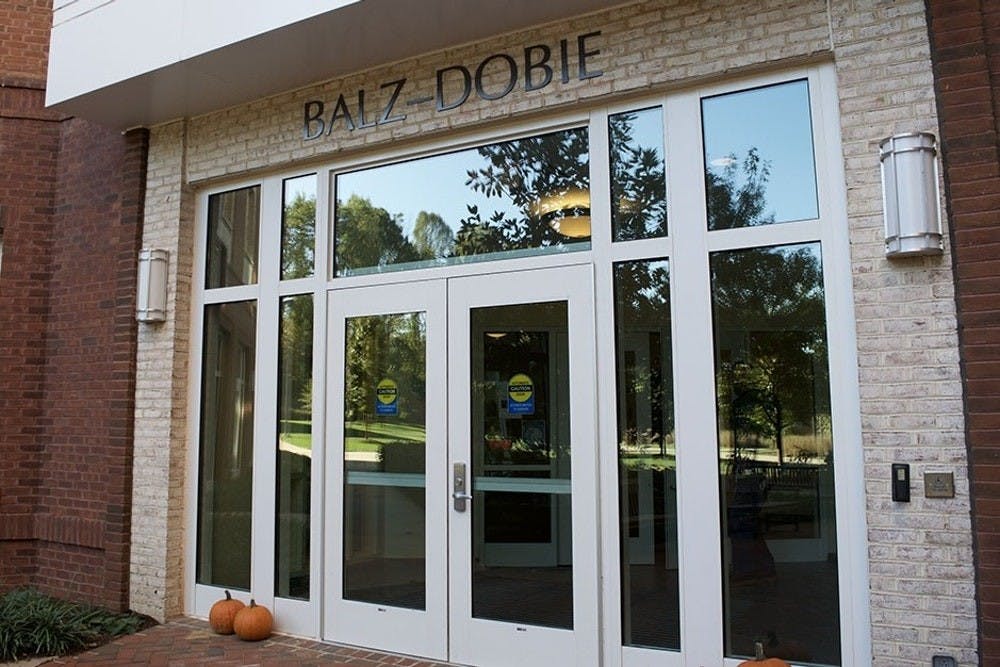Founded in 1960, the Echols Scholar program was created “to provide ambitious academic privileges to students while retaining them within the College of Arts & Sciences.” Created as an alternative to a “purely financial merit scholarship, or an entirely new honors college with its own faculty and courses,” this program was designed to provide a select group of students with several academic privileges not shared by other students in the College. Considering the already competitive pool of admitted students — not to mention the complete absence of specific criteria for admission on the Echols Scholar website — it is worrisome how vague the standards for acceptance to the program are. The Echols Scholars program in its current form creates an unnecessary academic hierarchy based on ambiguous criteria, which undermines the University’s mission to encourage intellectual diversity and equality within the student body.
The benefits offered by the Echols Scholars program include complete exemption from area requirements, additional advising resources, special first-year living accommodations and priority registration for class sign-ups. These perks are in direct opposition to the University’s stated mission to foster intellectual curiosity among its students. The University’s College of Arts & Sciences “[believes] a good liberal arts education must provide students with an extensive base of intellectual content and skills that enables them to explore ideas, evaluate evidence critically, draw reasoned conclusions, and communicate one’s thoughts in a clear, coherent manner.”
The rationale behind exempting Echols Scholars from area requirements is twofold, with the first reason being that “most Echols Scholars have already met many of these requirements through AP or dual-enrollment college credits before enrolling at the University.” However, the logic behind allowing a student who is already exempt from some of their requirements to be exempt from all of them escapes us. For example, just because you placed out of the language requirement doesn’t mean you should be exempt from the Natural Sciences and Mathematics requirement. This is especially questionable since so many students come into the University having taken courses exempting them from area requirements. If Echols Scholars receive these benefits because they already meet many of the requirements, then any student who has a sufficient number of college credits should be granted the same privileges. Furthermore, selecting scholars based on the number of college credits they have earned disproportionately benefits students from high-income school districts which offer more of these courses and often subsidize the costs of AP tests.
Additionally, “the Faculty Senate strongly believed that Scholars should be given the freedom to pursue their academic interests without first having to satisfy certain preliminaries.” But considering all students who are admitted to the University are incredibly high-achieving in terms of academics, it is unclear what is so exceptional about these few students that merits their exemption from a liberal arts education. Even if the Echols Scholars are academically superior to their peers, it is unclear why they are given the opportunity to circumvent courses that will challenge them. If anything, they should have higher standards, not lower ones. This issue is exacerbated by the fact that Echols Scholars are given earlier course sign-up times, which not only gives them an unfair advantage, but also limits the ability of their peers to pursue their interests by filling up the most popular classes before anyone else has the chance to.
Echols Scholars are also given the privilege of living in Balz-Dobie their first year in an effort to insulate these students in a “common living environment.” The proclaimed purpose of this additional privilege stems from the program founders’ apparent realization that “daily interaction among avid learners would facilitate the development of a sense of community, engage novel thinking and ideas, provide support via peer advising.” Rather than create a special learning environment, however, this privilege ends up forging social stratifications at the beginning of college by labeling some students as intellectually superior to their peers. Balz-Dobie has also been criticized for its appalling lack of racial and socioeconomic diversity, where it has failed to accurately represent the demographics of the rest of the student body. One of the greatest benefits of the typical first-year living experience is that it allows students to meet diverse groups of people. As it stands, however, the Echols Scholars program creates an ivory tower that insulates a select group of students from their peers.
As long as students meet the University’s academic standards upon admittance, there is no reason why a select group of students should have so many more privileges than their peers. One of the greatest benefits of the liberal arts education is that it gives students a blank slate from high school where they are able to discover themselves intellectually and interact with one another on a level playing field. This level playing field cannot exist if we continue the Echols Scholars program in its current form. Therefore, we urge the College to abolish the program.
The Cavalier Daily Editorial Board is composed of the Executive Editor, the Editor-in-Chief, the two Opinion Editors and their Senior Associate. The board can be reached at eb@cavalierdaily.com.







